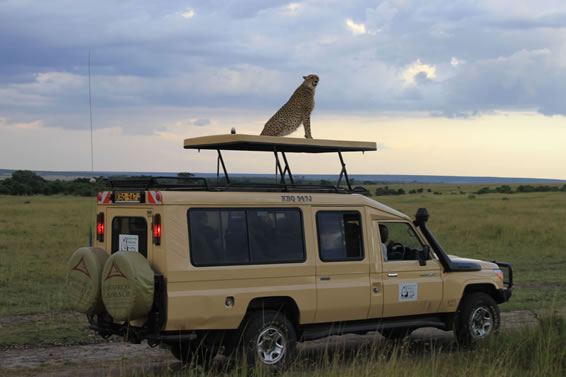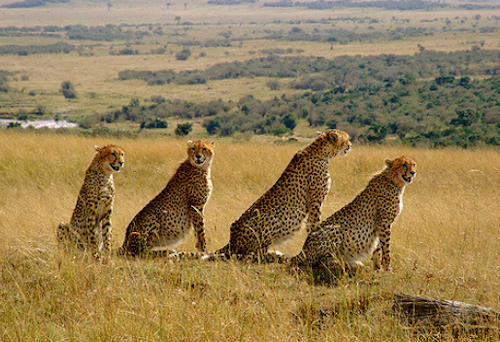Best Suggestions On Deciding On Kenya Tours And Safaris Wasini Watamu
Best Suggestions On Deciding On Kenya Tours And Safaris Wasini Watamu
Blog Article
What Health-Related Precautions Do I Need To Know When Holidaying In Mombasa, Kenya?
To ensure that you have an enjoyable and safe trip in Mombasa Kenya, it is essential to take essential precautions to protect your health. Here are key health issues to consider:
1. Vaccinations
Routine Vaccinations: Ensure that you are up-to-date on routine vaccines such as measles-mumps-rubella (MMR), diphtheria-tetanus-pertussis, varicella (chickenpox), polio, and your yearly flu shot.
Hepatitis A is recommended for all travelers because of the potential risk that food or water could be contaminated.
Hepatitis B : Travelers who are exposed to blood and bodily fluids through sexual contact, medical treatments, or drug usage should be informed.
Typhoid : This illness is crucial for people staying with family members or close family members, residing in rural or small towns areas, and for adventurous eaters.
Yellow Fever Travelers who are coming from countries that have the possibility of transmitting yellow fever may need to show a vaccination certificate. Review the requirements in place.
The Rabies virus is often viewed as a risk by those who participate in outdoor activities that are at risk of being bitten by animals, like those who are camping, hiking or caving.
2. Malaria Prevention
Mombasa is a place with a high incidence of malaria. Talk to your physician about the most effective antimalarial medicine for you.
Beware of mosquito Bites: Apply insect repellents with DEET, dress in long-sleeved clothes and long pants, particularly in the evenings and nights and then sleep with mosquito nets if you are there is no air conditioning or a room with a good screen.
3. Food and Water Safety
Consume only bottled or boiled drinking water. Do not drink tap or ice water.
Eating well-cooked food is the best method to remain safe. Avoid eating raw meat, seafood and unwashed fruit and vegetables. Avoid street food, and select reputable restaurants.
4. Diarrrhea for Travelers
Hand Sanitizer or washing your hands using soap and hot water is a good way to maintain a clean and healthy hand. Avoid drinking and eating drinks that are considered to be a risk.
Always carry medications, like Imodium (loperamide) as well as salts or oral water rehydration. Consult your physician about antibiotics to treat serious cases.
5. Sun Protection
Sunscreen: Apply sunscreen that has an SPF at least 30. Apply sunscreen regularly, particularly if you've been swimming or sweating.
Wear hats with sunglasses and wear lengthy sleeves and light clothing to minimize exposure to the sun.
6. Heating and Hydration
Stay Hydrated: Drink plenty of fluids, and especially water, to help prevent dehydration. Avoid drinking alcohol and caffeine since they can cause dehydration.
Beware of overexerting yourself. Take breaks during the more hot parts of the day. To prevent heatstroke or heat exhaustion, look for shade and cool places.
7. Water Sports: Safety and Security
Swim in Areas Delineated: Be aware of the local advice and the swimming conditions as well as any potential risks, such as a strong current.
Awareness of marine life Be aware of the dangers of marine life and steer clear of it, including seaurchins and jellyfish. When walking near water that is shallow take water shoes.
8. Care and Insurance. Care and Insurance
Travel Insurance: Travel insurance must cover medical emergencies and evacuation, as well as complete coverage.
Local Medical Facilities: Acquaint yourself with the location and reputation of reputable local medical establishments. Hotels with major chains will usually provide you with information on doctors as well as nearby hospitals.
Please bring enough medication to last for the entire duration of your journey.
9. Emergency Contacts
The Embassy: Contact the embassy of your home country in Kenya.
Local Emergency Numbers - Learn the local emergency number: Fire (999) Police (999), Ambulance (999).
By taking these health precautions You can reduce the risk and enjoy your holiday in Mombasa. Have a look at the top rated best holiday destinations in kenya for more recommendations including kenya safari beach, afri safari, kenya beach and safari holiday, kenya safari tours, mombasa travel agency, african safari tours kenya, kenya beach and safari holiday, safari excursions, african safari tours, tour mombasa and more.
What Are The Weather Considerations Should I Be Aware Of Before A Vacation In Mombasa Kenya?
When planning a holiday in Mombasa, Kenya, understanding the local weather patterns is crucial for packing appropriately and making the most out of your time. Here are the most important weather considerations.
1. Climate Overview
Mombasa is a hot and humid place with high humidity and temperatures year-round. Expect warm temperatures ranging between 24degC and 32degC.
2. Seasons
The hot and humid season (November-April) is characterized by extreme temperatures and high humidity. This is also the most popular tourism season, especially in the months of December and January.
Long rains from April to June The season of rain can bring heavy rains, and sometimes thunderstorms. Roads can become slippery and difficult to navigate. This is a low-season for tourism.
Cooler Season (June to October) You can enjoy the cooler temperatures and less humidity during this period. The weather is generally pleasant, making it ideal for outdoor pursuits.
Short Rains: During this time it is a time of fewer and less intense rain showers. The rains usually last only a few minutes and are followed by bright skies.
3. Packing Tips
Lightweight Clothing: Wear lightweight clothes that are breathable like linen or cotton, to stay cool in hot weather.
Rain Gear - If traveling during the rainy season be sure to pack a jacket with a water-resistant coating, an umbrella, as well as waterproof footwear.
Sun Protection: A sunscreen with a high-SPF, wide-brimmed caps, sunglasses, light clothing, and covering your skin with light clothes will shield you from strong sunlight.
Wearing Swimwear: Be sure to have your swimwear with you at all times you visit the hotel pools and beaches.
4. Weather-specific activities
Beach Time: The best time to enjoy beach activities is in the cooler months (June to October) when the weather is nice and the sea conditions are favorable.
Water Sports: The calm clear, clear water from November through February is perfect for diving, swimming, snorkeling, or any other water sport.
Wildlife Viewing - The colder months (June through October) are ideal for safaris or excursions into the wild, since it's more relaxing.
5. Health Considerations
Hydration: The hot and humid climate requires you to drink plenty of water. Drink plenty of water, especially if you are taking a walk in the sun.
The heat-related illnesses: Be aware to the dangers of heat exhaustion or heatstroke. Wear loose clothes and frequent breaks in shade. Avoid vigorous activities during the peak heat.
6. Adjustments to Travel
Rainy Season Travel: Prepare to face travel delays and disruptions if you go to during the rainy season. Some roads may be impassable, and outdoor activities could be limited.
Tropical Rains: Sometimes tropical rains can lead to delays in flights. Be conscious of your travel schedule and plan contingency plans.
7. Environmental Considerations
Natural Hazards: Pay attention to the potential for flooding in heavy rains that come down. Keep yourself informed of weather conditions and take local advice on safety.
Tide Awareness: When you are planning activities at the beach be aware of the tides, which can vary drastically. Consult local tide charts for safe swimming, beachcombing, and many other activities.
Knowing what you can expect from the weather in Mombasa it will help you organize and plan your trip. Make sure you pack securely, and enjoy a safe time. View the best kenya tours and safaris Wasini Watamu for blog recommendations including travel & tours company, kenya safari holiday, tour company, tours & safaris, safari tour, mombasa safari packages, kenya travel, kenya safari holiday, safari company kenya, kenya tours and travel and more.
What Financial Planning Considerations Should I Be Aware Of Before I Travel To Mombasa Kenya?
A planned financial trip to Mombasa in Kenya is a relaxing and easy experience. These are some key aspects to bear in your mind.
1. Budgeting
Accommodation: Do your research and book in advance. Prices are influenced by the type of lodging and its location.
Transportation: Include costs for flights, local transportation (taxis or tuk-tuks and car rentals) and any possible excursions.
Costs for meals of all kinds, including food and eating out. Prices can vary from inexpensive local restaurants to expensive dining establishments.
Make plans for tours and activities. This includes entry charges for the attractions as well as guided tours, as and activities such as safaris, water sports, cultural tours and more.
2. Exchange Rates and Currency
Kenyan Shilling (KES): This is the currency used in Kenya. Be familiar with the exchange rate.
Currency Exchange The possibility of exchange is in reputable banks, currency exchange bureaus, exchange, or at your hotel. Avoid exchanging cash on the streets.
ATMs: ATMs are widely available in Mombasa. Verify that your credit card is compatible for international withdrawals.
3. Payment Methods
Cash: Carry a few dollars for tips, small purchases and other places that don't accept credit cards.
Major credit cards accepted at restaurants, hotels and shops. Inform your bank of any travel plans in order to avoid having your credit card blocked.
Mobile Payments M Pesa is the most well-known mobile payment system. This is particularly useful for local SIM cards.
4. Get savings with these cost-saving tricks
Travel off-season. By traveling in the off-season or shoulder (April to October and November to April), you can save cash on hotels, flights and other travel costs.
Book Early: Booking early can help you score better deals on travel, accommodations and even tours.
Local Eateries. For a more authentic experience, try eating at local eateries or food market stalls.
5. Tipping
Tipping is customary in Kenya. In restaurants, it's common to give 10% if there's no service offered. Tipping hotel staff is at your discretion.
The amount: Small tips in local currency are appreciated. For instance, you can tip the porters KES 50-100 a bag and the housekeepers 100 KES a day.
6. Emergency Funds
Reserve Funds: Maintain an emergency fund of cash and ensure you have access to extra funds via credit or debit card in the event of an unexpected expense.
Travel Insurance: Get an insurance policy that is comprehensive and covers medical emergencies, trip cancellations, and theft or loss of belongings.
7. Security
Security of valuables: Use hotel safes to keep passports, cash and other valuables. Be aware when using ATMs, especially at night.
Avoid Carrying large Sums. Don't carry huge sums of money with you. Split your cash and cards among a wallet as well as the safest place.
8. Local Transactions
Local markets are a popular place to bargain. With courtesy and humor, try to bargain an affordable and fair price.
Receipts: Keep receipts of major purchases. This is useful in tracking budgets and in the event of a dispute.
9. Understanding Fees
Your bank could charge fees for international withdrawals. Certain ATMs charge an additional charge for foreign cards.
Costs of Currency Conversion: Be aware that banks might charge conversion fees when you use your credit card or debit card abroad.
When you consider these financial planning considerations that you will be able to control your expenses efficiently and enjoy a your holiday without worry in Mombasa. Check out the top kenya tours and safaris Wasini Watamu for website info including kenya safari packages, mombasa tour packages, tours safari africa, afri safari, travel & tours company, safari trips in kenya, mombasa safaris kenya, africa and safari, kenya safari beach, kenya safaris and tours and more.